Forager Review
A gem waiting to be uncovered.
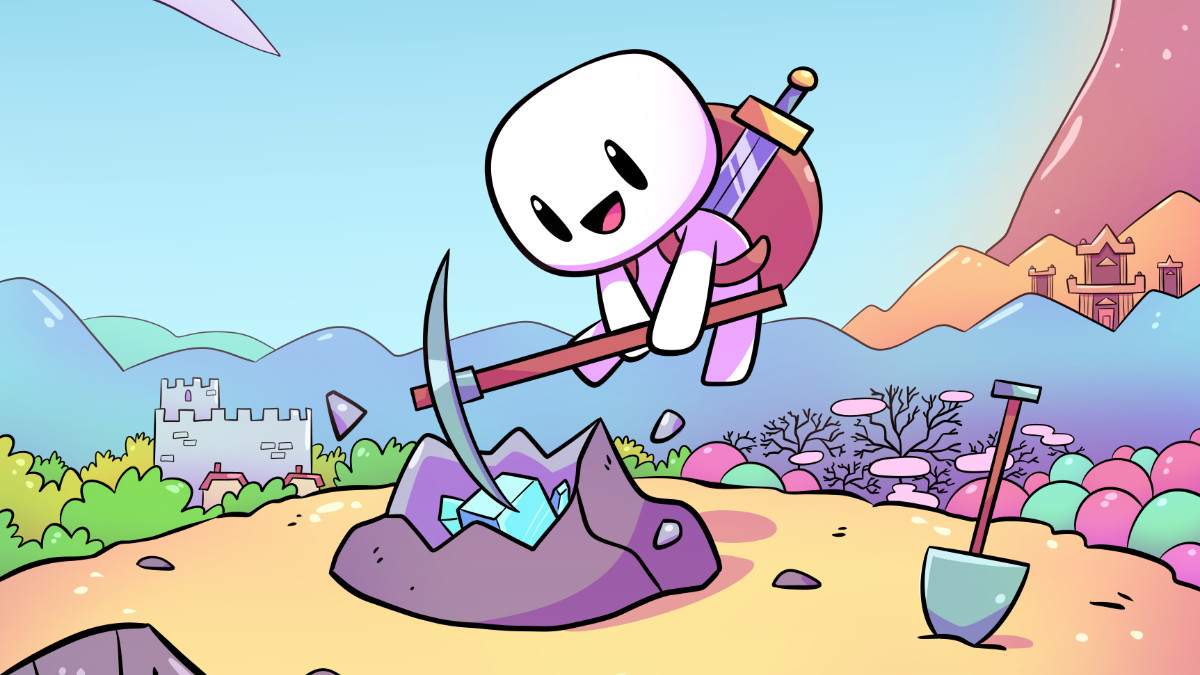
I’m a small, nondescript figure with a backpack and a pickaxe, surrounded by giant talking radishes. I would die for these radishes. I. Would. Die.
Actually nevermind, I just killed ‘em. The resource gathering must go on.
And so continues Forager, a game that blends idle-resource-management-crafting-roguelite and somehow makes it work. Despite appearances, Forager is not a clicker game as such – relaxing and compulsively satisfying it may be – but it has enough depth to keep you searching and building long into the night.
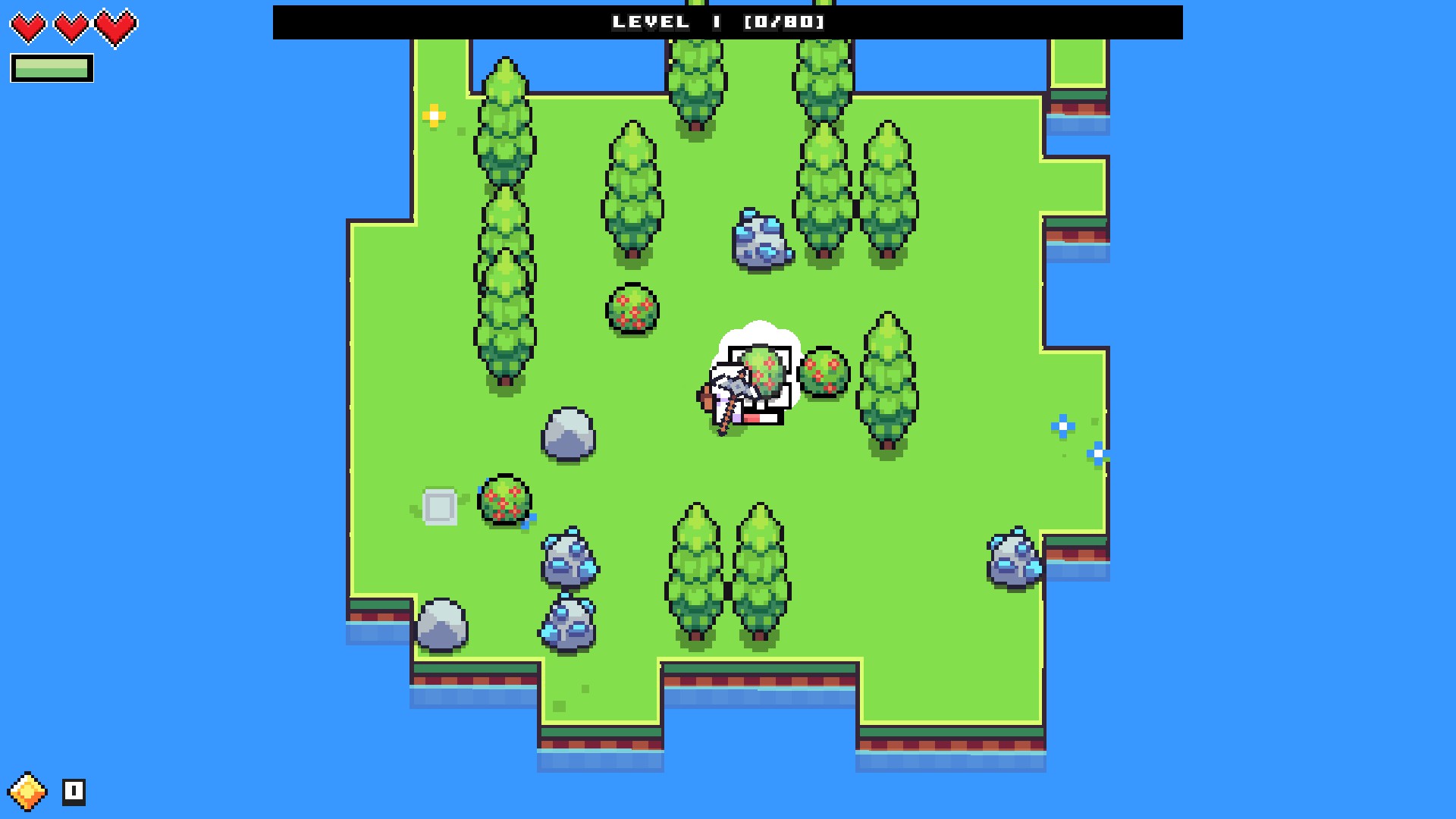
Worried as I was, that the days of willful grinding were behind us veterans of a past age, Forager brings it back with style. You will passively find yourself clicking on rocks for the best part of an hour and not feel a single regret. The premise of this seemingly simple game is to forage, scavenge, and then build various items to help you on your way. These include industrial machinery, farming equipment, buildings, commerce centres, and magical implements among other things. Once you choose your gameplan, you can equip yourself with perks from an elaborate skill tree that unfurls according to your personal playstyle.
This skill tree is one of my favourite things about Forager. Starting with four main sections, you expand outwards depending on what aspects of the game you value most. The opportunities are there to further capitalism and expand your empire, or merely settle with a farm and befriend animals. You can master the magic arts, or become an archaeologist. For a game so simple there is no shortage of meaningful pathways to follow.
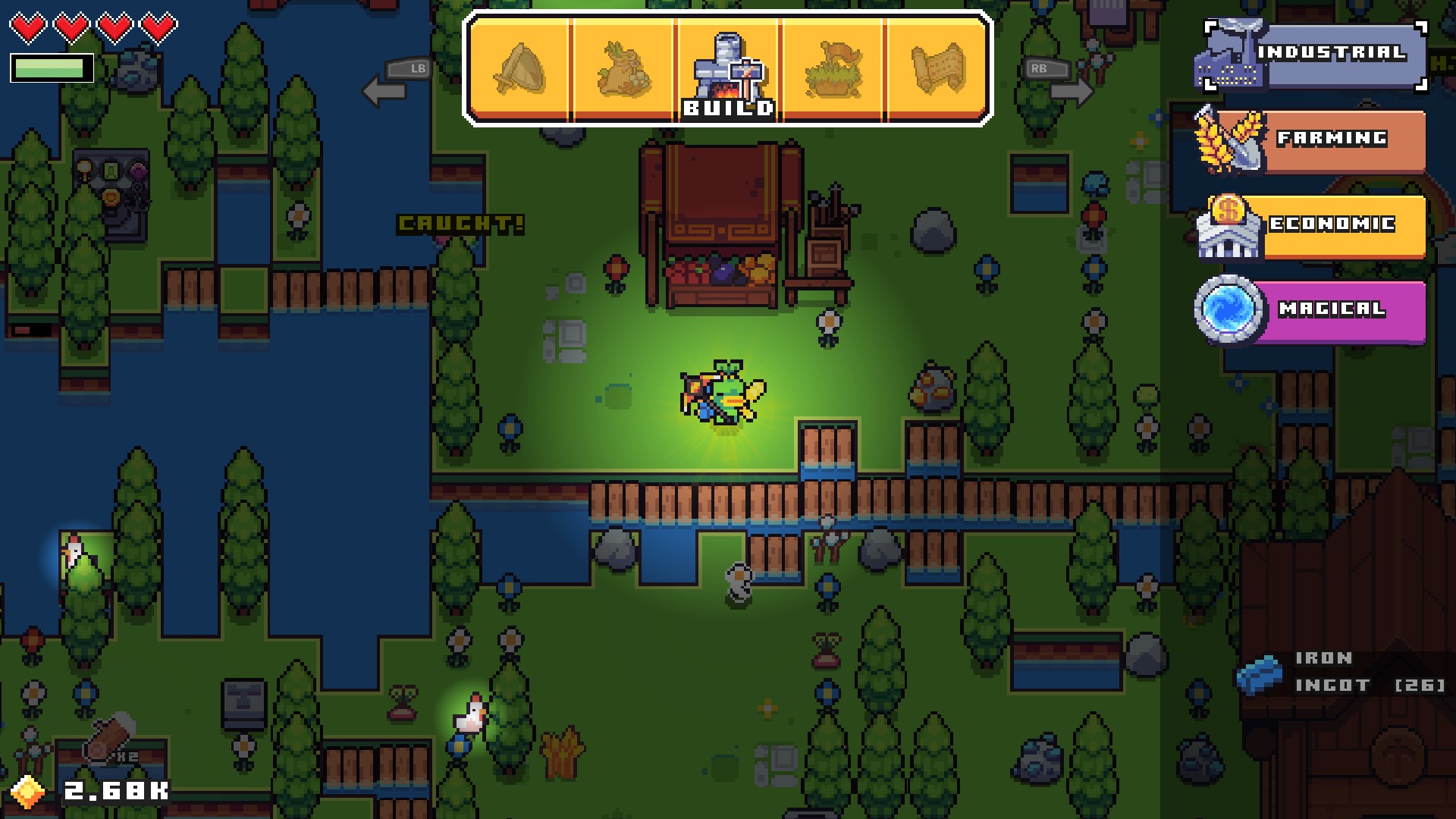
Resource gathering is the backbone of Forager, with spawning raw materials and an upgradable range of tools at your disposal. I can’t say this presents much of a challenge in terms of scouting -resources are in (sometimes overwhelming) abundance, and come in new forms with each unlocked land type. This gives the world a cluttered feel, which initially can be a little demanding, but with careful planning can become a thing of beauty.
Visually, this is a joyful example of simplistic indie graphics at their best. Quirky, soft pixel art uses colour and movement to define itself, opening up a world you feel some genuine affection for. The only area of the presentation that’s lacking is the sound effects, which tend to grate if you have too many things happening at once. I willfully dismantled a lucrative fish-trap farm after the repetitive sounds made me reevaluate my relationship with commercial farming.

For an indie jam game with a small back-up team, Forager presents remarkably well. For the most part it is neat and clean, with bugs being hoovered up quickly by the responsive dev team. I noticed minor issues with my pre-release playthrough – such as rainbow mushrooms not spawning correctly, rendering a certain puzzle unsolvable – but by the official release of the game this was well under control.
We already know multiplayer is on the way, an improvement that seems vital, if just for the longevity of the game itself. Hunter-gatherer type games tend to work best when in teams, if you can get your friends to work like a well-oiled machine, and the roguelike elements of Forager would certainly lend themselves to party-lite gameplay.
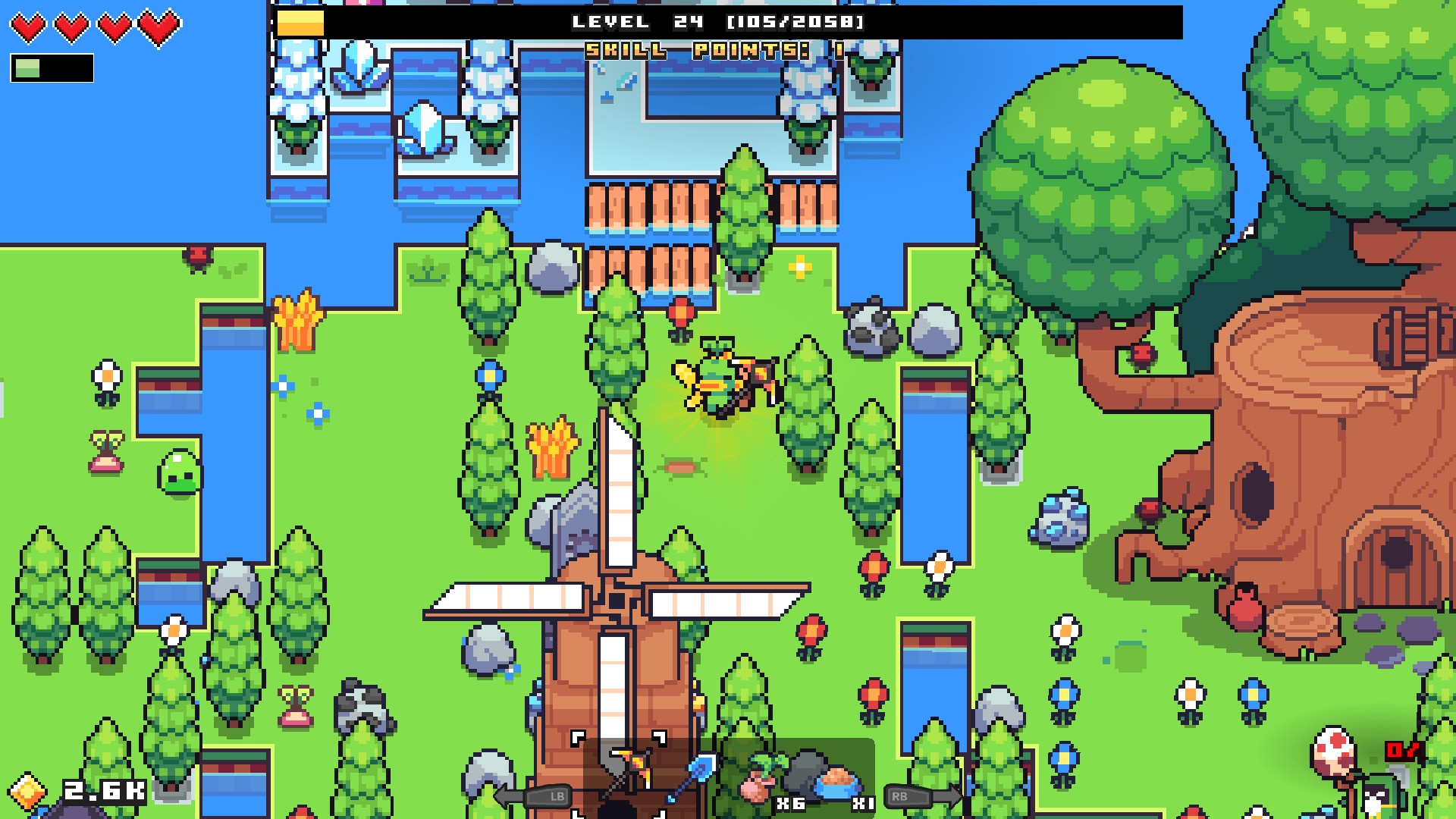
Dungeon crawling is a viable playstyle, with plenty of puzzles, enemies, and valuable treasures to unlock. With a combat update on the way Forager seems likely to expand this even further, but my hope is that the simplicity and charm don’t take a backseat. Forager works because of the unexpected depth within its easy-to-learn controls and context. Early pre-release criticisms voiced a concern that play-time would be limited, but this is a game offering a solid 20+ hours, if not far more.
A fair warning, though: Forager isn’t a game to play if you want to ‘prove’ something. It is relaxing, almost therapeutic, with sturdy combat, but there is no real ‘threat’ as such. If you die, chances are you will be returned to exactly where you left off, inventory intact. If you run low on energy and don’t notice, your character will shout at you until you do. Even with its admittedly enjoyable combat, there is no real fear of death, and no scarcity of resources, so if you need something that pushes you hard, Forager isn’t for you.
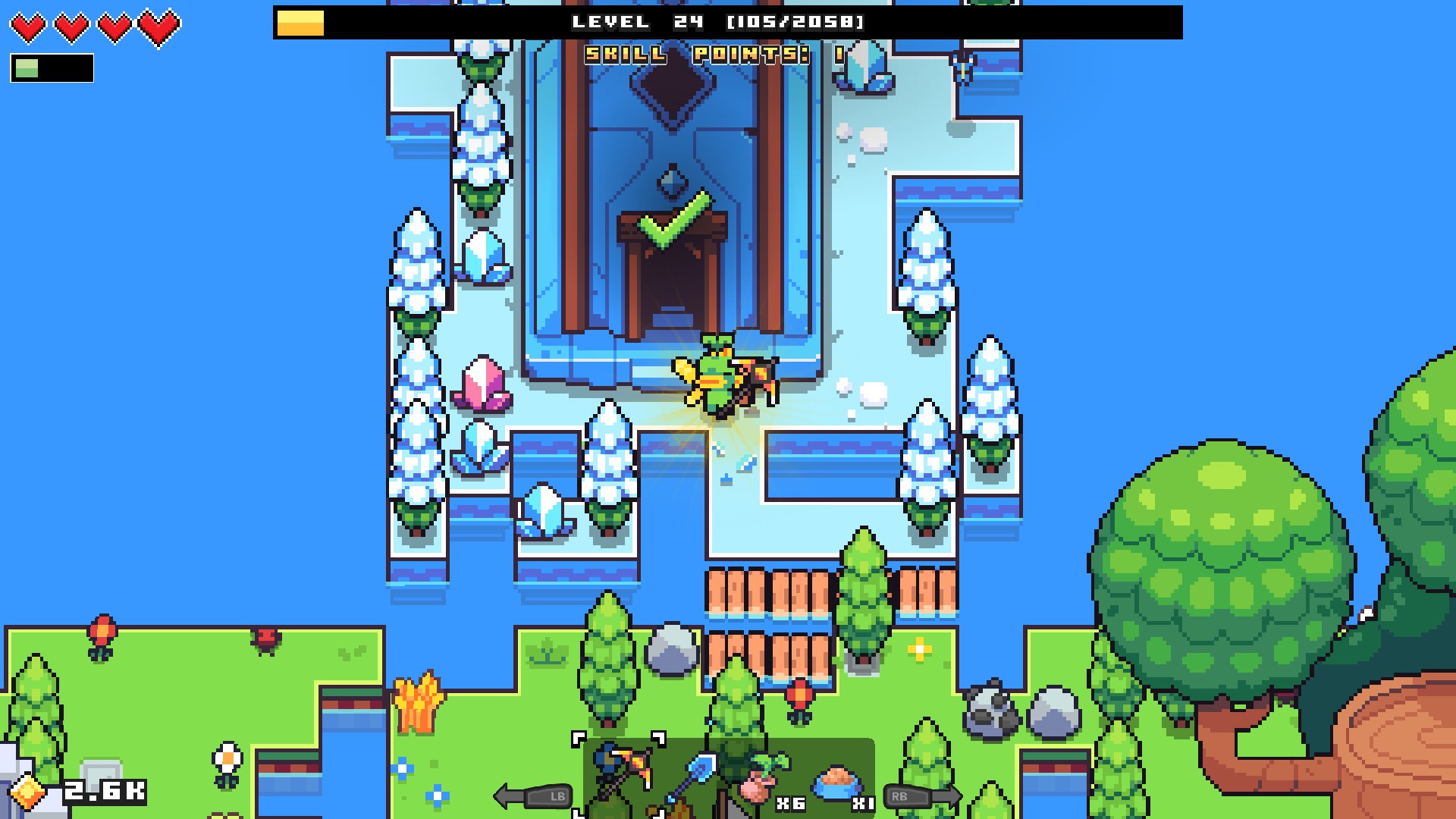
That being said, none of the charm is lost through this. Forager gives you what you signed up for, and the updates are sure to introduce some sort of difficulty curve or optional complexity later on down the line. Crucially, Forager offers an update timeline in its main menu that shows what we can expect from the game in months to come. My one request is that NPCs are given more weight, as those included are fun and engaging and it would be great to see more characters inhabit this world.
Forager does what many simple games wish they could do, combining a few high-quality concepts, glorious visuals, and genuinely fun gameplay to carve out a niche for itself that scratches an itch you barely knew you had. When the only real issue holding a game back is the promise of multiplayer implementation (which essentially means the only problem is that we want more of it), you know you’re onto a good thing. An immensely satisfying game, and one that holds so much promise as to its development, Forager is a great buy as it stands, and a worthwhile investment in the long run.
[Reviewed on PC]
